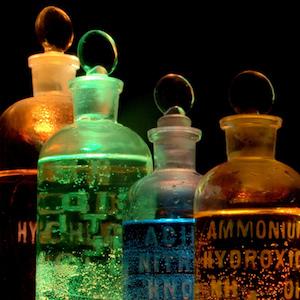When I was in high school, I was part of a community service organization (Key Club) that literally was one of the best in the world. We won international awards, and at the state level, it wasn't uncommon for us to sweep nearly all the awards.
Maybe I was the only one who felt this way, but after a while, it started to get a little uncomfortable. Everybody already knows you're the best, and winning every award year after year feels a little like rubbing it in. Public accolades paradoxically make me feel proud but also a little embarrassed.
It's a good thing that the scientific community in the United States doesn't share my conflicted feelings about the spotlight. Because, once again, Americans have dominated the Nobel Prizes.
On Monday, the 2017 Nobel Prize for Physiology or Medicine was awarded to research on the circadian rhythm, our body's internal clock1. All three laureates are American. On Tuesday, the 2017 Nobel Prize for Physics was awarded for gravitational waves, which are ripples in spacetime. All three laureates are American. Today, the 2017 Nobel Prize for Chemistry was awarded for the imaging of molecules using cryo-electron microscopy. One of the three awardees was an American scientist, though he was born in Germany.
In case you're keeping count, the science portion of the 2017 Nobel Prizes was given to nine scientists, seven of whom are American.
Despite the ceaseless hand-wringing over the alleged decline of science in America, the reality is that the U.S. will remain #1 in the world for quite some time. That's not because I'm a chest-thumping, flag-waving American wearing rose-tinted glasses, but because it is objectively true. The U.S. has the lion's share of the world's best research universities, and it is responsible for a plurality of global R&D funding. The most impactful research comes from the U.S. None of these factors is likely to change in the near future.
As a result, we can fully expect that America will continue to dominate the Nobel Prizes for years to come. But not everybody is happy about that.
Meet the Nobel Prize Critics
There has been a fringe movement to attack the integrity of the Nobel Prizes. Matt Francis, a PhD physicist, wrote that "it's up to us to dethrone the Nobel Prizes." Why do they need to be dethroned? Because:
"The Nobel Prize is... a reminder that despite our advances, we still promote the idea that Science is done by the Lone White Male Genius, maybe with an adoring female assistant standing by..."
Ah, of course. The Nobel Prize is bad because of racism, sexism, and oppression2. I should have seen that coming. This article was subsequently cited by Ed Yong in a recent piece for The Atlantic, in which he called the Nobel Prizes "absurd." He echoed, nearly verbatim, the complaint by Dr. Francis. The postmodern worldview embraced by science writers and other journalists requires that all attempts to recognize excellence be scorned.
To be sure, the Nobel Prizes are imperfect. Scientists work by "standing on the shoulders of giants," which means that no breakthrough can ever really be attributed to just one (or three) people. Today, the problem is worsened by the fact that some discoveries involve the collaboration of thousands of scientists. Picking the one, two, or three most important contributors is a daunting and controversial task.
That, however, is an argument for reform of the Nobel Prizes, not denigration. All awards are controversial precisely because there are winners and losers. That's true not only of the Nobel Prizes but for the 2nd grade "Student of the Week" award, which I must confess I never actually won3.
Furthermore, the Nobel Prizes do something truly unique: They bring celebrity status and public honor to scientists for their hard work and contribution to society. Like Neil deGrasse Tyson and Bill Nye the Science Guy, they do far more good for science than harm, even if they occasionally make you want to pull your hair out.
It's difficult to avoid noticing that Mr. Yong, on his personal website, mentions that he is the recipient of several science communication awards. Given his privileged male status, he should probably return them, lest he be accused of hypocrisy.
Notes
(1) Dr. Julianna LeMieux has a good piece explaining the significance of this discovery.
(2) Dr. Julianna LeMieux also has written on this topic, notably in a much more thoughtful and mature way.
(3) It's not like I'm bitter or anything.




